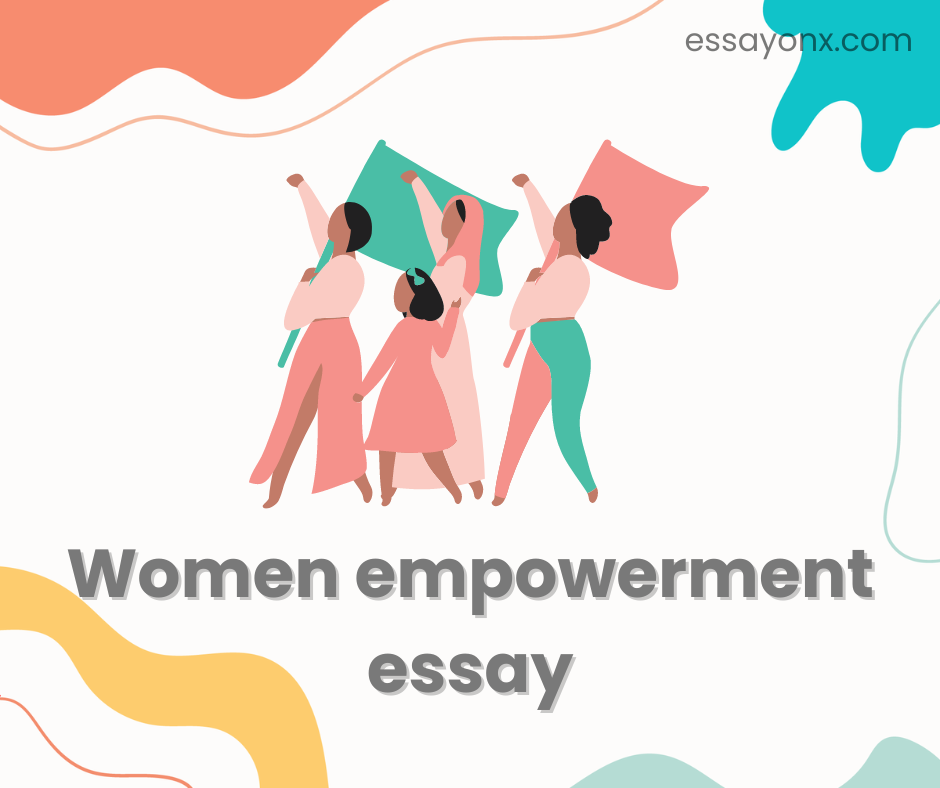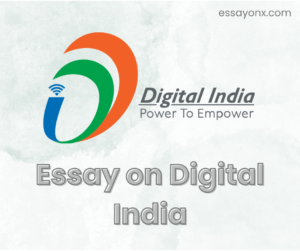Women empowerment essay: In this essay, we delve into the multifaceted concept of women empowerment, its significance, challenges, and the transformative impact it can have on individuals, communities, and societies as a whole.
Introduction: Women Empowerment: A Path to Equality and Progress
In societies around the world, women have historically faced systemic barriers to their empowerment and equality. However, in recent decades, there has been a growing recognition of the importance of women’s empowerment in achieving sustainable development and social justice.
Understanding Women Empowerment:
Women empowerment refers to the process of enhancing women’s ability to participate fully and equally in all aspects of life, including social, economic, political, and cultural spheres. It involves challenging gender norms, dismantling discriminatory practices, and promoting gender equality and women’s rights. Women empowerment is not just about giving women opportunities; it’s about creating an enabling environment where women can exercise their agency, voice their opinions, and make informed choices about their lives.

Key Dimensions of Women Empowerment:
Women empowerment encompasses various dimensions, including:
- Education: Access to quality education is fundamental to women empowerment. Education equips women with knowledge, skills, and confidence, enabling them to pursue their aspirations, achieve economic independence, and participate actively in decision-making processes.
- Economic Empowerment: Economic empowerment involves ensuring women’s access to resources, livelihood opportunities, and financial independence. This includes promoting women’s entrepreneurship, access to credit and markets, and addressing gender wage gaps and employment discrimination.
- Health and Well-being: Women’s health and well-being are essential components of empowerment. This includes access to reproductive health services, maternal and child healthcare, nutrition, and sanitation facilities. Empowered women are better able to make informed decisions about their health and advocate for their rights.
- Political Participation: Political empowerment entails women’s participation and representation in political processes and institutions. This includes increasing women’s leadership roles in governance, decision-making bodies, and public offices, as well as ensuring their participation in electoral processes.
- Legal Rights: Ensuring women’s legal rights and protections is critical for their empowerment. This includes laws and policies that address gender-based violence, discrimination, property rights, inheritance rights, and access to justice. Legal empowerment enables women to assert their rights and seek redress for violations.
Challenges to Women Empowerment:
Despite progress in recent years, women empowerment continues to face numerous challenges, including:
- Gender Stereotypes and Discrimination: Deep-rooted gender stereotypes and discriminatory attitudes continue to limit women’s opportunities and perpetuate gender inequality in various spheres of life.
- Access to Education: In many parts of the world, women still face barriers to accessing quality education, including poverty, cultural norms, early marriage, and gender-based violence.
- Economic Disparities: Women are disproportionately affected by poverty, unemployment, and lack of access to economic opportunities, particularly in rural and marginalized communities.
- Gender-based Violence: Gender-based violence, including domestic violence, sexual harassment, and human trafficking, remains pervasive and inhibits women’s ability to exercise their rights and freedoms.
- Lack of Political Representation: Women are underrepresented in political leadership positions, decision-making bodies, and public offices, limiting their ability to influence policies and shape agendas.
The Transformative Impact of Women Empowerment:
Women empowerment has the potential to bring about transformative changes in individuals, families, communities, and societies:
- Economic Growth and Development: Empowering women economically can boost productivity, drive innovation, and stimulate economic growth. Studies show that investing in women’s education and employment opportunities yields significant social and economic returns.
- Poverty Alleviation: Women’s economic empowerment is closely linked to poverty alleviation and sustainable development. Empowered women are better able to support themselves and their families, breaking the cycle of intergenerational poverty.
- Social Cohesion and Stability: Women empowerment fosters social cohesion, reduces inequalities, and promotes inclusive development. Empowered women are more likely to invest in their communities, participate in civic activities, and contribute to social progress.
- Health and Well-being: Empowering women improves health outcomes for themselves and their families. When women have access to education, healthcare, and reproductive rights, maternal and child mortality rates decline, and overall health indicators improve.
- Peace and Security: Women’s participation in peacebuilding and conflict resolution processes is crucial for achieving sustainable peace and security. Empowered women contribute to conflict prevention, reconciliation efforts, and post-conflict reconstruction, promoting stability and resilience in societies affected by conflict.
Conclusion:
Women empowerment is not just a matter of social justice; it is essential for achieving sustainable development, peace, and prosperity for all. By challenging gender norms, promoting gender equality, and investing in women’s education, health, and economic opportunities, we can unlock the full potential of women and girls as agents of change and drivers of progress. As we continue on the journey towards gender equality and women empowerment, let us remain committed to building a more inclusive, equitable, and sustainable world for future generations.

